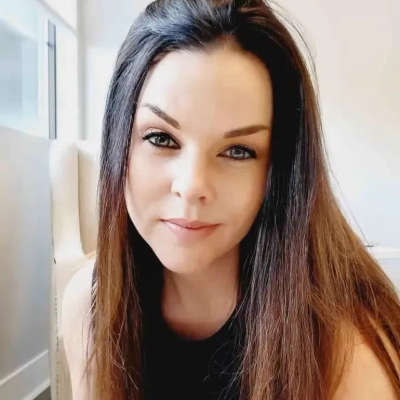25 Lessons Learned from Navigating Financial Crises that Every Business Owner Should Know
Navigating financial crises can be a daunting challenge for business owners, but valuable lessons can be learned from those who have successfully weathered economic storms. This article presents key insights from industry experts on how to effectively manage and thrive during turbulent financial times. From prioritizing liquidity to maintaining emotional discipline, these lessons offer practical strategies for business resilience and growth in the face of economic uncertainty.
- Prioritize Liquidity and Lean Operations
- Build Trust Through Transparent Communication
- Design Cash Flow Discipline in Advance
- Frame Deals Around Shared Outcomes
- Prepare Operations Infrastructure for Growth
- Focus on Cash Flow in Real Estate
- Understand Industry-Specific Economic Cycles
- Maintain Emotional Discipline in Uncertain Times
- Set Boundaries to Protect Yourself and Clients
- Separate Emotions from Strategy During Crises
- Diversify Revenue Channels for Adaptability
- Communicate Early with Stakeholders for Flexibility
- Simplify Offerings During Economic Downturns
- Invest in Marketing During Recessions
- Diversify Client Offerings for Stability
- Protect Relationships Before Profit in Crisis
- Focus on Cost-Saving Solutions for Clients
- Leverage Existing Relationships for Funding
- Build a Peace-of-Mind Fund Early
- Examine Fundamentals for Hidden Opportunities
- Budget for Essential Expenses Early
- Educate Clients Proactively on Market Cycles
- Innovate and Add Value During Crises
- Prioritize Steady Cash Flow Over Profits
- Focus on High-Value Services and Reserves
Prioritize Liquidity and Lean Operations
I navigated one of the toughest financial downturns by focusing on liquidity first, even when every instinct was telling me to chase growth. Revenue was shrinking, costs were rising, and it felt like every decision came with trade-offs. The turning point came when I stopped asking, "How do we get back to where we were?" and started asking, "What's the leanest version of this business that can still deliver value?" That shift allowed me to prioritize cash preservation without completely stalling momentum.
The process was uncomfortable. It meant renegotiating vendor contracts, tightening budgets, and in some cases, pausing projects that we were deeply invested in emotionally but couldn't justify financially. The hardest part wasn't the math—it was communicating those decisions with honesty and clarity to the team and stakeholders. Transparency became the most important tool. By sharing the realities openly, I found that people rallied around the plan rather than resisting it.
The lesson I wish I had known earlier is this: build resilience before you need it. Having contingency reserves, flexible cost structures, and diversified revenue streams gives you options when markets shift. In the moment, I had to scramble to create that flexibility, but I've since made it part of every financial strategy I work on.
A downturn forces discipline. It strips away the nice-to-haves and forces you to focus on what really drives survival and, eventually, recovery. Looking back, I wouldn't wish the crisis on anyone, but I can say it sharpened my approach to financial leadership more than any period of growth ever did.
Build Trust Through Transparent Communication
When the financial downturn hit, it really put GreenAce Lawncare to the test. One season, many of our clients suddenly had tighter budgets, just as fertilizer and mowing equipment prices went up. I had to figure out how to keep delivering high-quality service without overcharging. I spent hours reworking schedules, negotiating better rates with suppliers, and designing seasonal packages that clearly showed the value of our work. One client told me she appreciated how we explained why fertilization mattered for her lawn, which made her feel confident keeping her service even with a tighter budget. Those conversations reminded me that trust and transparency can carry you through tough times.
I relied heavily on lessons my dad taught me from his 30 years in the fertilization business. He always said, "Know your soil and track plant health, and the results will show." Focusing on what really made a difference, like targeted fertilization and precise mowing patterns, meant homeowners could see their lawns improve in just a few weeks. When you want a lawn that feels cared for, these small, thoughtful details really matter.
I also had to rethink how we managed money. Offering flexible service plans and bundled packages helped clients stay on board without feeling stretched. One commercial client even told me our scheduling adjustments helped his office maintain a great-looking property without exceeding his budget. That taught me a big lesson I wish I'd known sooner: keeping open, honest communication with clients makes a huge difference, especially when finances are tight. Explaining why treatments matter and showing progress can prevent cancellations before they happen.
Some of the smartest changes weren't fancy at all. I reorganized mowing routes to save on fuel and introduced seasonal fertilization plans that stretched every dollar further. Clients noticed their lawns looked healthier while spending less than they expected. When you want a lawn people admire, these practical changes make a visible impact. The biggest lesson I took away was the importance of blending technical expertise with real care. A lawn isn't just grass; it's where families play, neighbors connect, and people take pride in their homes. By combining skill with empathy, GreenAce not only survived the downturn but strengthened relationships with our clients. It showed me that even in tough times, thoughtful service and clear communication can make all the difference.
Design Cash Flow Discipline in Advance
One of the most difficult financial downturns I had to navigate at Amenity Technologies came during a period when multiple client payments were delayed simultaneously. On paper, we were profitable; in reality, our cash flow was tightening so quickly that meeting payroll and funding ongoing R&D felt like walking a tightrope. I remember the stress of those weeks vividly—the numbers looked fine in projections, but liquidity was evaporating in real time.
The way we got through it was by renegotiating payment schedules with both clients and vendors simultaneously. On the client side, I pushed for partial milestone payments instead of lump sums at the end, framing it as a way to accelerate delivery and keep momentum. On the vendor side, I requested temporary extensions, being transparent about our situation. That balance—securing inflows sooner while stretching outflows slightly—helped us stabilize without outside funding.
The lesson I wish I had known beforehand is that cash flow discipline isn't something you fix in a crisis; it's something you design for in advance. If I'd built stronger buffers and diversified contract structures earlier, the downturn wouldn't have been so stressful. Now, I treat liquidity as seriously as growth: we forecast conservatively, keep reserves, and structure deals to avoid single-point vulnerabilities.
That experience taught me that resilience in business finance comes less from reacting well under pressure and more from setting guardrails before the storm hits.

Frame Deals Around Shared Outcomes
When Tevello was just getting off the ground, we hit a serious cash crunch that almost stopped us before we could prove our value. I remember negotiating with a key Shopify partner to defer payments and instead link costs directly to results, which gave us the breathing room to grow. Between you and me, that performance-based deal was the quiet hero behind our eventual turnaround. The lesson I wish I had understood sooner is that partners often want you to succeed too, so framing deals around shared outcomes can open doors that upfront cash simply can't.
Prepare Operations Infrastructure for Growth
There was a year when everything grew: team size, revenue, and client count. However, we had no operations infrastructure to support that growth. Invoicing was delayed, client deliverables missed deadlines, and project managers were overwhelmed. This spiraled into client churn and internal burnout just as recession fears hit. That financial decline wasn't caused by recession; it was caused by being unprepared for scale.
Since then, I've built operations as a core pillar, not an afterthought. I hired fractional CFOs, upgraded systems, and implemented client forecasting dashboards. The lesson? Scale breaks what you don't see when you're growing fast. I wish I had known that growth without scaffolding is a hidden liability.
Focus on Cash Flow in Real Estate
When the 2008 housing crash hit, I was holding several properties, banking mostly on appreciation, and those turned into headaches fast. I remember struggling just to cover mortgages while values kept sinking, which taught me how fragile speculation really is. The big takeaway from that season was that you can't skip cash flow; rentals that pay for themselves survive no matter what values do. Since then, I've focused on buying properties where the rent comfortably covers expenses, instead of betting on future gains. If I'd learned that lesson earlier, I would have skipped a lot of sleepless nights.

Understand Industry-Specific Economic Cycles
COVID-19, of course, was a notable downturn for most industries. And yet, in recruiting, things were booming. Companies were scrambling to fill roles, talent was shifting rapidly, and for a while it felt like there was endless demand for our work.
But then, almost overnight, the pendulum swung the other way. As the initial chaos settled and businesses adjusted, hiring slowed dramatically. What had felt like unstoppable growth hit a wall, and the pace at which opportunities came in shifted just as quickly as it had accelerated.
The lesson I took from that period has been one of the most valuable in my career: boom and bust times are not evenly distributed. Just because the broader market is in decline doesn't mean your business will be, and just because the market is hot doesn't guarantee your own sector will keep riding the wave.
I realized I'd been preparing for the wrong scenarios at the wrong times, because I was too focused on macroeconomic headlines instead of the unique rhythms of my own industry. COVID taught me that the smartest strategy isn't just to follow the broader economy, but to deeply understand the specific cycles, triggers, and vulnerabilities of the space you operate in.
In other words, context matters more than consensus.

Maintain Emotional Discipline in Uncertain Times
I began my career in the precious metals industry during a period of global financial uncertainty. Initially, I faced a steep learning curve as markets fluctuated wildly and investor anxiety was high. At first, it was tempting to feel pressured to react quickly to every headline. However, I quickly learned that knee-jerk decisions often create more risk than they mitigate.
During that time, I focused on developing patience and maintaining a long-term perspective. I made it a priority to thoroughly understand market fundamentals and to communicate clearly with clients about realistic expectations. It wasn't about timing the market perfectly; rather, it was about building trust and providing clarity in moments of uncertainty.
The biggest lesson I wish I had known at the outset is the importance of emotional discipline. Fear and uncertainty are contagious, but allowing emotions to drive decisions can be costly. Keeping a steady, analytical approach while guiding clients through turbulent times proved far more effective.
In retrospect, I see that the ability to stay calm, remain informed, and prioritize client education over reactionary moves not only safeguarded portfolios but also strengthened relationships. That mindset remains the foundation of how I navigate challenging financial environments today.

Set Boundaries to Protect Yourself and Clients
During the 2008 housing crash, I worked nonstop trying to keep deals alive, but the truth is I pushed myself past the breaking point. I remember sitting in my car after back-to-back showings, realizing I was running on fumes, but still convincing myself the market demanded it. What I learned is that boundaries actually protect you and your clients. When you're exhausted, you can't lead anyone effectively. If I could go back, I'd tell myself that a steady hand through a crisis is more valuable than trying to be everywhere at once.
Separate Emotions from Strategy During Crises
During the COVID-19 downturn, I quickly realized that protecting our team's well-being had to come before profit margins. Instead of letting fear drive decisions, we offered flexible work arrangements and extra mental health support so therapists felt secure. This steadiness helped us move confidently into telehealth, and surprisingly, our client base expanded beyond local areas. The biggest lesson I took from this is to separate emotions from strategy; by staying calm and focused, the right decisions become much clearer under pressure.
Diversify Revenue Channels for Adaptability
Early on in my practice, I faced a period where new client referrals slowed drastically, and it felt like I was constantly chasing stability. I responded by introducing small group workshops that clients could attend at lower costs, which still supported revenue while keeping the practice visible. To my surprise, those workshops also led to long-term individual counseling relationships, giving me both stability and growth. Looking back, I wish I had prioritized multiple revenue channels from the start rather than waiting for a crisis. Diversifying services, even in small ways, makes the business far more adaptable.
Communicate Early with Stakeholders for Flexibility
I managed a financial downturn by ensuring cash flow visibility and making timely, decisive actions instead of waiting for the situation to improve. I built a rolling 13-week cash flow forecast that updated every week. This allowed me to identify where cash shortfalls would occur, giving me the ability to negotiate with vendors and lenders from a prepared position. I cut or delayed unnecessary expenses but protected investments connected to revenue growth. Surviving and preserving investments for future growth is a difficult balancing act.
One lesson I wish I had known earlier is that stakeholder transparency is valuable. Trust is built through early communication with vendors, clients, and your team, and the flexibility they provide is often surprising. Waiting until the situation feels critical reduces your options, while proactive communication frequently leads to innovative strategies.
Simplify Offerings During Economic Downturns
During a major downturn in the digital marketing space, I realized clients weren't looking to experiment with flashy new SEO tactics; they just wanted reliable, cost-predictable services. We pulled back from complex add-ons and instead streamlined our core offerings so agencies could get consistent results within tighter budgets. One agency told us our package approach became their lifeline because it kept them delivering for their clients without worrying about ballooning costs. The big lesson for me was that in hard times, simplicity and predictability will always beat novelty.

Invest in Marketing During Recessions
When the 2008 recession hit, many companies cut back on marketing, which at first looked like a disaster for agencies like mine. However, I noticed that the few clients who continued investing in SEO saw incredible long-term gains because competition suddenly decreased. Time after time since then, when budgets have shrunk, I've advised clients that strategic consistency is more beneficial than completely pulling out of marketing efforts. The lesson I wish I had learned sooner is that economic downturns are actually windows of opportunity to leap ahead, not just survive.

Diversify Client Offerings for Stability
During COVID-19, elective surgeries dropped overnight, and that was a real hit for us at Plasthetix. Instead of waiting it out, we quickly shifted gears and built telehealth-focused campaigns so clients could still reach patients virtually. That pivot helped stabilize the downturn, but I wish I had diversified client offerings earlier instead of relying so heavily on elective revenue. My take: reach for broader service options whenever you're up against unpredictable market swings—it creates breathing room when one revenue stream dries up.
Protect Relationships Before Profit in Crisis
In 2020, when shipping costs increased literally overnight, many customers froze orders, and cash flow became tight within a week. I recall sitting in the Shenzhen office at SourcingXpro late into the night, crunching numbers and realizing we needed to cut expenses while still maintaining trust with buyers during uncertain times. We doubled down on free inspections and pushed more $1000 MOQ orders, even if margins were tight. This strategy pushed orders out and made customers happy.
The biggest lesson learned here is that you must protect relationships before profit, period. I wish I had known that sooner because I would have taken faster action instead of letting the loss of every dollar stress me out. Honestly, that approach kept us afloat.

Focus on Cost-Saving Solutions for Clients
During one economic downturn, I observed that many clients halted new projects but continued to struggle with inefficient internal workflows that were eroding their profit margins. Instead of pushing for growth features, we redoubled our efforts on automation that directly reduced wasted hours and costs. I recall a consulting firm expressing gratitude because our platform allowed them to maintain their current headcount while handling more projects, which effectively saved them from implementing layoffs.
The lesson I wish I had learned sooner is that during difficult times, proving you can save money today is far more valuable than promising increased revenue tomorrow.

Leverage Existing Relationships for Funding
During one of our company's most challenging financial periods, I took an unconventional approach by turning to our largest customer for investment rather than pursuing traditional funding routes. This customer had a strong balance sheet and understood our business value, making them an ideal, though non-traditional, investment partner. While this arrangement came with some restrictive commercial terms that we had to accept given our position, it ultimately provided the capital necessary to keep operations running during the downturn. The key lesson I wish I had known earlier is the importance of looking beyond conventional funding sources and leveraging existing business relationships when facing financial constraints. This strategic decision not only saved our company but positioned us for tremendous growth and meaningful profits within four years.

Build a Peace-of-Mind Fund Early
When the pandemic hit, our revenue at The Funnels Guys dropped almost overnight. Clients froze budgets, campaigns were paused, and for a few weeks, it felt like we were free-falling. Instead of panicking, I sat down with a notebook and listed every single expense — subscriptions, tools, even the office coffee delivery. We trimmed hard, renegotiated contracts, and doubled down on services that drove quick ROI for clients, like conversion optimization and local SEO.
The biggest lesson I learned was that cash flow is oxygen. I wish I had built a "peace-of-mind fund" much earlier — a reserve that could keep operations running for three to six months without new income. Having that cushion would've taken away the knot-in-the-stomach feeling and let me focus on strategy instead of survival.

Examine Fundamentals for Hidden Opportunities
When our company faced revenue challenges during a market slowdown, we had to think creatively instead of just cutting costs or spending more on marketing. We found that switching from monthly to 28-day billing cycles helped us increase annual revenue by 8.5% without needing to acquire a single new customer. The biggest lesson I learned was that sometimes the most impactful financial solutions aren't about dramatic changes or expensive initiatives, but rather examining your existing operations for small adjustments that compound over time. I wish I had known earlier to look at our basic business processes first before jumping to more complex solutions. This experience taught me that during tough times, carefully reviewing your fundamentals can reveal opportunities hiding in plain sight.

Budget for Essential Expenses Early
The particularly difficult financial downturn I faced occurred when I moved out at age 18 and suddenly took on full responsibility for my food costs. I consider this a personal crisis because, having always been provided for, I completely overlooked budgeting for food. This led to excessive use of expensive food apps like DoorDash, and my savings were quickly disappearing.
To counter this, I had to implement strict financial rules. First, I decided I needed a budget, and second, I set a limit on the frequency of ordering out. The crucial action I took was committing to cooking meals at home instead of relying on delivery.
The most important lesson I learned, which I wish I had known beforehand, is that home cooking works incredibly well for protecting your budget. I now understand that the hidden fees and company profit on ordered food jeopardize long-term financial stability far more than the food cost itself.

Educate Clients Proactively on Market Cycles
During the 2008 financial crisis, emotional reactions could derail long-term plans. Many investors panicked and sold at the bottom, locking in losses. Sticking to a disciplined asset allocation strategy allowed me to guide clients through volatility without abandoning fundamentals.
The lesson I wish I had known beforehand is the importance of proactive education. Explaining market cycles before turbulence arises creates stronger trust and steadier decision-making. Had I emphasized this earlier, I could have helped more clients stay the course.
Today, I prioritize scenario planning and stress testing portfolios in advance. By preparing for downturns in calmer times, investors can withstand the inevitable storms with more confidence.

Innovate and Add Value During Crises
The first question that hits you during a financial crisis is: How do we survive now? Finances are the core of every decision, and staying indispensable to our customers is the need of the hour. Instead of clashing with each other and chasing short-term finances, one needs to focus more on innovation and value addition at this point in time.
When that situation hit me, I focused the most on providing value to customers wherever I could. Listening to the most urgent problems and providing them with solutions they need, I offered many with our pilot project and asked potential clients to be collaborators. And after a while, growth followed.
"Where there's a will, there's a way" has always been my guiding principle. It wasn't the first client I pitched who agreed to my model. A lot of rejections and meeting dropouts occurred, but a clear vision led to successful collaborations. After a while, I started getting referrals, and consumer virtual footfall increased within 6 months.
Prioritize Steady Cash Flow Over Profits
We navigated a tough downturn by cutting nonessential spending quickly and shifting focus to the services that brought in steady cash flow, even if margins were smaller. In our shop, that meant pausing big purchases and putting more energy into repeat maintenance jobs that kept money coming in. The lesson I wish I'd known earlier is that cash flow matters more than profit on paper; having steady income, even at lower margins, buys you time and stability. My advice is to always know which parts of your business generate reliable cash and be ready to lean on them when things tighten.

Focus on High-Value Services and Reserves
One of the most valuable lessons I learned during a financial downturn was to double down on higher value-add business. Competing in commoditized areas is tough, but when you bring technology together with business insight and a bit of ingenuity, you can create solutions that truly stand out. That not only sets you apart from the competition but also helps you build strong case studies that give you an edge with new clients. Over time, those case studies become real assets; they don't just help with business development, they also build lasting credibility in the market.
The second big lesson was around financial management, specifically the importance of reserves. Having a cushion to cover at least a year of operations, even if revenue dries up, gives you the breathing room to keep going without being forced into hasty or pressured decisions. With reserves in place, you can still invest in sales, marketing, and operations even when the market is shaky. Building that kind of buffer isn't easy, but when you focus on high-value positioning, clients are often willing to pay a premium, and that makes it possible.
Both lessons - focusing on high-value services and maintaining reserves - were key to helping us weather tough times. They gave us stability when it mattered most and positioned the business for long-term growth and success.












